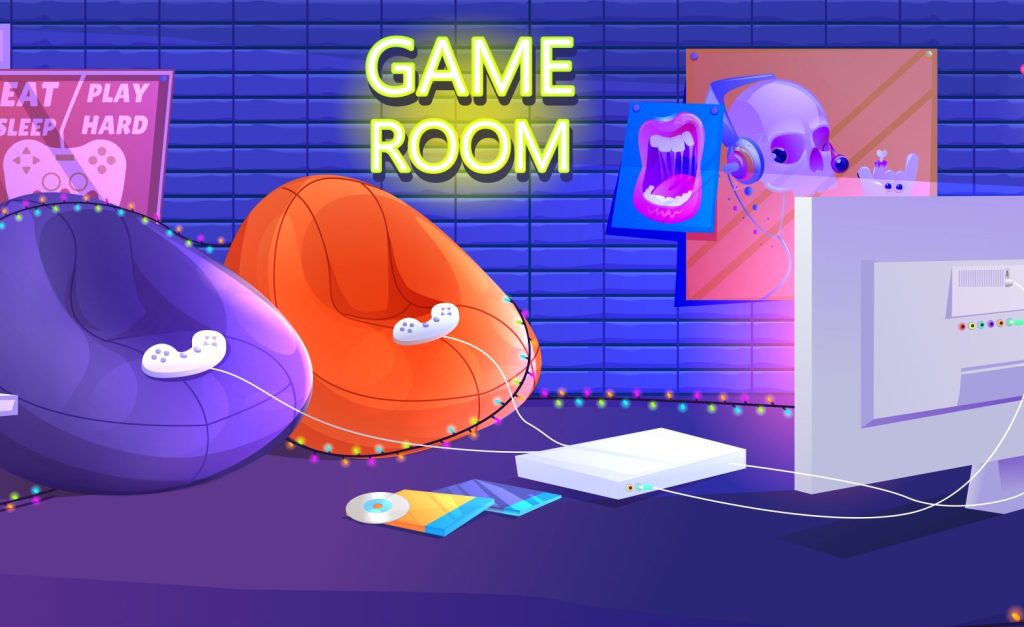How Gaming Platforms Are Changing the Entertainment Industry: Trends and the Future
The entertainment industry has experienced dramatic shifts over the past decade, with gaming platforms playing a pivotal role in this transformation. Once considered a niche hobby, video games have evolved into a global phenomenon that rivals traditional entertainment mediums like movies, television, and music. As technology continues to advance, gaming platforms are not only revolutionizing how people play games, but they are also shaping the broader entertainment landscape. In this article, we’ll explore how gaming platforms are changing the entertainment industry and what trends are likely to define the future.

The Rise of Digital Entertainment
One of the most significant changes in the entertainment industry has been the rise of digital content. Gaming platforms like PlayStation, Xbox, Steam, and Epic Games Store have redefined how people consume entertainment. In the past, physical media (like game cartridges and DVDs) dominated the scene. Today, players and audiences can access content instantly, from anywhere in the world, with just a few clicks or taps.
Streaming services have followed a similar trajectory, with platforms such as Netflix, Disney+, and Spotify offering on-demand access to movies, TV shows, and music. The lines between gaming, movies, and music have blurred, and cross-platform collaborations are increasingly common.
Interactive Entertainment: A New Era
Traditionally, the entertainment world has been divided into passive and active experiences. Movies and TV shows are passive—audiences watch and consume content without direct interaction. Games, on the other hand, provide an interactive experience where players have control over their actions and decisions. This interactivity has evolved with innovations like virtual reality (VR) and augmented reality (AR), pushing the boundaries of what’s possible in entertainment.
Today, platforms like Oculus, PlayStation VR, and Microsoft’s HoloLens are bringing immersive VR and AR experiences to consumers. These technologies are allowing users to step into new worlds, interact with characters, and make choices that impact the outcome of their experiences. VR and AR are not just reserved for games; they’re transforming the entertainment landscape, with concerts, art installations, and even virtual tourism becoming mainstream.
The Impact of Social Interaction and Streaming
Another key trend driving the future of gaming platforms is the increasing emphasis on social interaction and streaming. Online multiplayer games such as Fortnite, Minecraft, and League of Legends have built vibrant communities, where players can connect with others from around the world. These platforms have gone beyond traditional gaming—they’ve become social hubs, with users collaborating, competing, and communicating in real-time.
Live streaming platforms like Twitch and YouTube Gaming have taken this social interaction to the next level. Gamers can broadcast their gameplay to an audience, interact with viewers via live chats, and even make a career out of playing video games. The social aspect of gaming is now so prominent that many games offer in-game streaming features, allowing players to share their experiences with a global audience.
As gaming continues to converge with social media, these platforms are becoming central to how people consume and share entertainment. Major events, such as virtual concerts or eSports tournaments, are streamed live to millions of viewers, offering new ways for fans to engage with content.
The Future of Gaming Platforms
The future of gaming platforms is incredibly exciting. As technology continues to improve, we can expect even more immersive, interconnected, and socially-driven experiences. Here are some trends that will likely define the future of the entertainment industry:
Cloud Gaming
Cloud gaming platforms like Google Stadia, Microsoft’s Xbox Cloud Gaming, and Nvidia GeForce Now are eliminating the need for high-end hardware by streaming games directly to devices like smartphones, tablets, and smart TVs. This could make gaming more accessible and affordable for a wider audience, while also promoting the growth of subscription-based models that mirror those of streaming services like Netflix.Increased Integration with Other Media
Gaming platforms will continue to merge with other forms of media. Games are already inspiring movies and TV shows (such as Netflix’s The Witcher and Amazon’s The Lord of the Rings), while films and series are becoming playable experiences (e.g., Stranger Things in Fortnite). Expect to see even more crossovers, interactive narratives, and collaborations between gaming and traditional entertainment.AI-Driven Personalized Experiences
Artificial intelligence (AI) is set to revolutionize how games and entertainment are personalized. AI could allow games to adapt to players’ preferences, making each gaming experience unique. For example, dynamic storylines that change based on individual choices, or AI-driven characters that learn and interact in more lifelike ways, could become a common feature in the future.Virtual and Augmented Reality in Mainstream Entertainment
Virtual reality (VR) and augmented reality (AR) technologies will continue to grow, making gaming experiences even more immersive. We are likely to see the rise of VR/AR entertainment beyond gaming, with virtual concerts, sports events, and interactive movies offering new ways to experience content.Esports as Mainstream Entertainment
Esports has seen a rapid rise in popularity, with major tournaments being broadcasted to millions of viewers worldwide. In the future, esports could become as mainstream as traditional sports, with stadiums, teams, and sponsorships creating an entire ecosystem around competitive gaming. This trend is expected to continue, with games like League of Legends, Overwatch, and Valorant leading the way.
Conclusion
Gaming platforms are changing the entertainment industry in profound ways. From the shift to digital content and the rise of interactive entertainment to the increasing importance of social interaction and live streaming, gaming is no longer just a pastime—it’s a central part of the broader entertainment ecosystem. As technology continues to evolve, the future of gaming promises even more exciting innovations, making it an exciting time to be a gamer or entertainment enthusiast.
Whether you’re playing the latest blockbuster title, attending a virtual concert, or tuning into an esports tournament, gaming platforms are reshaping how we experience and engage with entertainment in ways we never thought possible.
